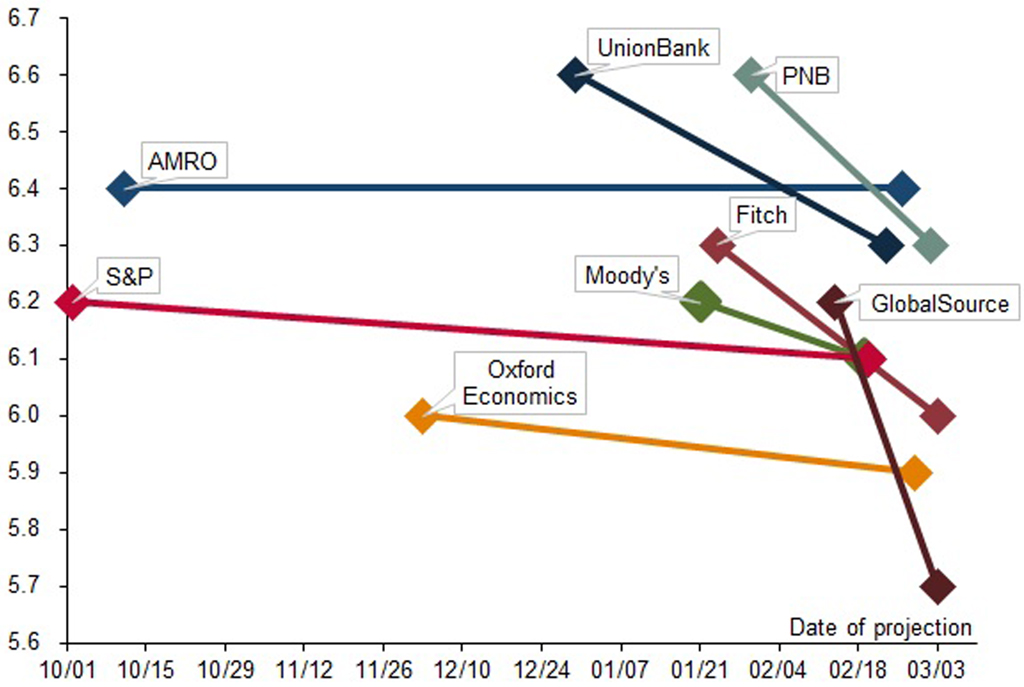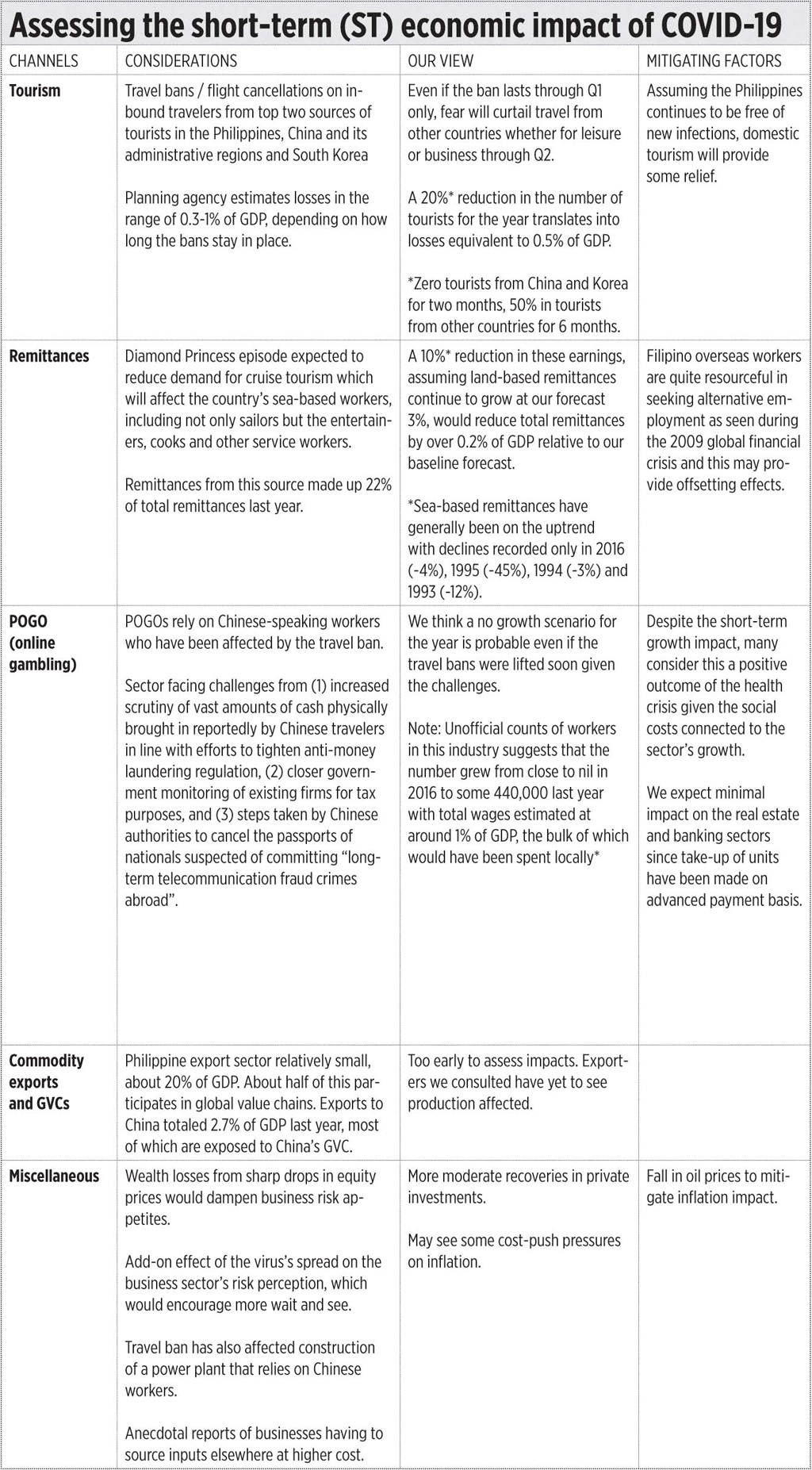How to make digital taxation click
Digital technology has undoubtedly revolutionized the world economy. With the growing popularity of online shopping in particular, businesses can reach consumers without needing a physical location. The increasing digitization of the world economy has not only made the sale of goods and services instantaneous and efficient — it has also provided a convenient way for consumers to purchase goods without having to waste time being stuck in heavy traffic.
According to research pioneered by Google, the internet economy in Southeast Asia hit the $100 billion mark in 2019. By 2025, the internet economy is projected to grow to $300 billion. These numbers indicate a significant opportunity for tax authorities to not only regulate appropriately, but to also tap this source for additional government revenue.
CROSS-BORDER ONLINE TRANSACTIONS
In 2013, the BIR issued Revenue Memorandum Circular (RMC) No. 55-2013 to set the tone for companies operating in the digital market. By reiterating the obligations of parties in online transactions, the Circular sought to enforce our tax laws in the digital economy. However, the Circular has yet to address cross-border online transactions, or how taxes will be imposed on non-residents for online sales to local consumers. One apparent reason for this may be the inadequacy of our present tax laws as basis for taxing this type of transactions.
Like most jurisdictions, the Philippines relies on physical presence or locus of activity within the country as a condition for the imposition of taxes. Tax treaties are likewise framed this way. However, cross-border online sales do away with physical presence since most online servers are located outside the country. Sales activities conducted through these portals are deemed to occur outside Philippine territory, as it can be argued that since an online transaction’s server is located outside the Philippines, the business itself isn’t considered to be held within the country. Such transactions can therefore be said to be outside the country’s taxing jurisdiction. Regardless, it is difficult to determine where the locus of the sales activity truly lies, only making it more difficult to enforce tax rules.
THE NEED TO INNOVATE PRESENT TAX LAWS
Tax authorities will need to come up with innovations to our present tax laws to address tax profits earned by non-residents from consumers here, as well as the enforcement or collection of taxes, the visibility over tax reporting data, and the addressing of the controversy surrounding the issue of capturing lost profits for our country. However, doing so without disrupting how bricks-and-mortar businesses are taxed can be daunting. In this light, perhaps our tax authorities can revisit the recent proposals of the Organization for Economic Cooperation and Development (OECD).
Last year, the OECD released the Programme of Work to Develop a Consensus Solution to the Tax Challenges Arising from the Digitization of the Economy. While the Philippines is not a member of the OECD, the issues tackled by the organization are felt worldwide, and our tax treaties are patterned after the publication. The tax authority has also cited OECD commentaries in several rulings, giving the commentaries a more persuasive effect. The Philippines can benefit from the suggestions raised by the organizations in addressing base erosion issues for tax purposes.
The proposals contained in the publication were grouped into two pillars:
Pillar One, which focuses on the allocation of taxing rights and seeks to undertake a coherent and concurrent review of the profit allocation and nexus rules; and Pillar Two, which seeks to develop rules that provide jurisdictions with a right to tax back where other jurisdictions have not exercised their primary taxing right, or where the payment is otherwise subject to low levels of effective taxation. It calls for the development of a coordinated set of rules such as the income inclusion rule, switch-over rule, undertaxed payment rule, and the subject to tax rule. Their development addresses the ongoing risks from structures that allow multinational companies to shift profit to jurisdictions with very low or no taxation.
There are three proposals under Pillar One that tackle how taxing income generated from cross-border activities in the digital age could be allocated among countries. These are composed of the “user participation” proposal, the “marketing intangibles” proposal and the “significant economic presence” proposal. All are supposed to allocate more taxing rights to the jurisdiction of the customer and/or user.
Of special interest is the “user participation” proposal, which focuses on digitized business models such as search engines, social media platforms and online marketplaces. This proposal suggests that profits should be allocated to market jurisdictions based on the value-creating activities of the active user base.
THE DIGITAL ECONOMY AS AN ADDED SOURCE OF REVENUE
As a burgeoning digital economy, we may wish to explore how value-creating activities can be a source of taxing rights over income from digital cross-border sales.
Granted, tax authorities will need to carefully weigh the nature of digital taxing rights vis-à-vis the importance of negotiations. One only needs to ask about the fate of the digital tax passed by France last year, which had to be postponed amid US retaliatory tariffs.
However, once the statutory foundation for a set of tax rules that apply to the digital economy is drafted, bilateral as well as region-wide discussions in matters of implementation will surely follow. The key here is to find the right balance between creating a consistent and globally accepted set of digital tax rules that can benefit tax authorities in all jurisdictions while also being fair and supportive of digital enterprises that face new and rapidly evolving challenges to remain competitive in an increasingly crowded online market.
This article is for general information only and is not a substitute for professional advice where the facts and circumstances warrant. The views and opinion expressed above are those of the author and do not necessarily represent the views of SGV & Co.
Ma. Theresa M. Abarientos-Amor is a Senior Manager from the Tax Advisory Services Group of SGV & Co.



